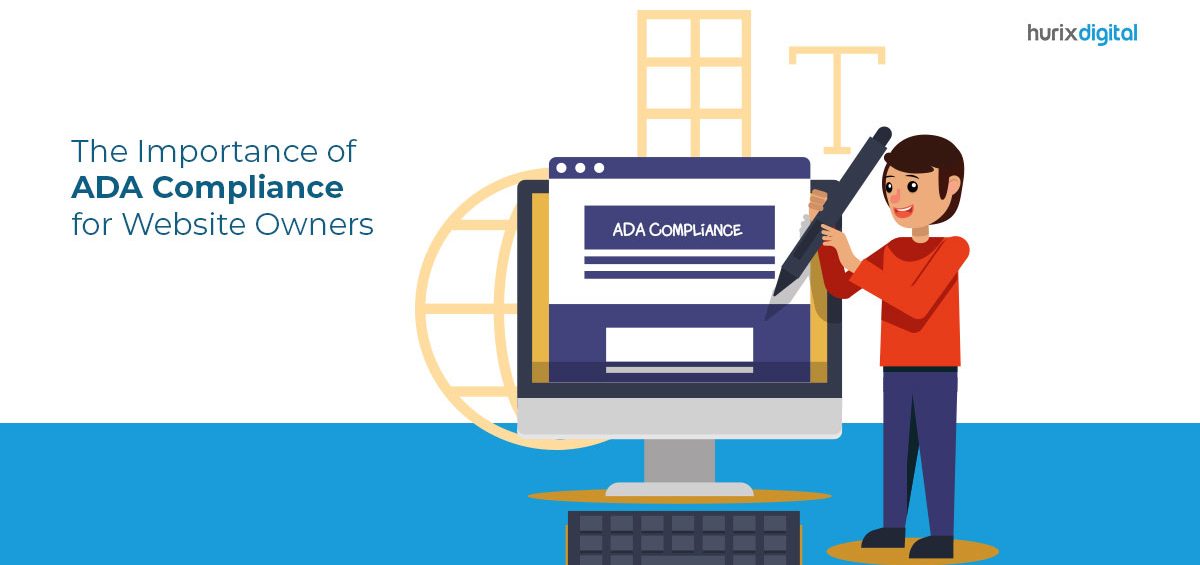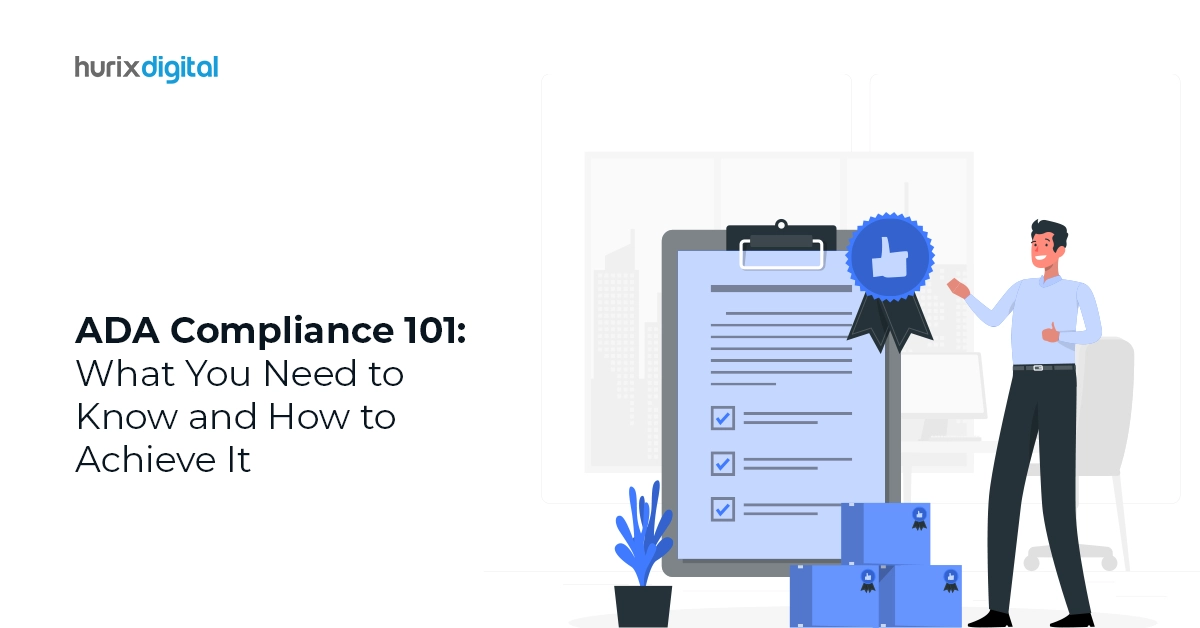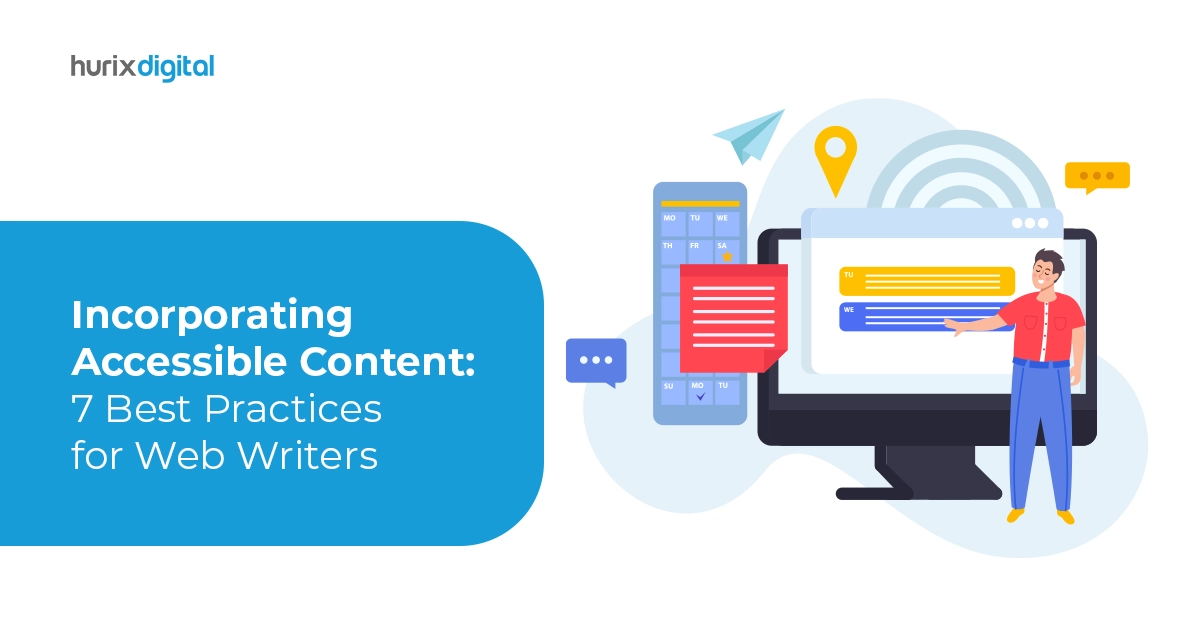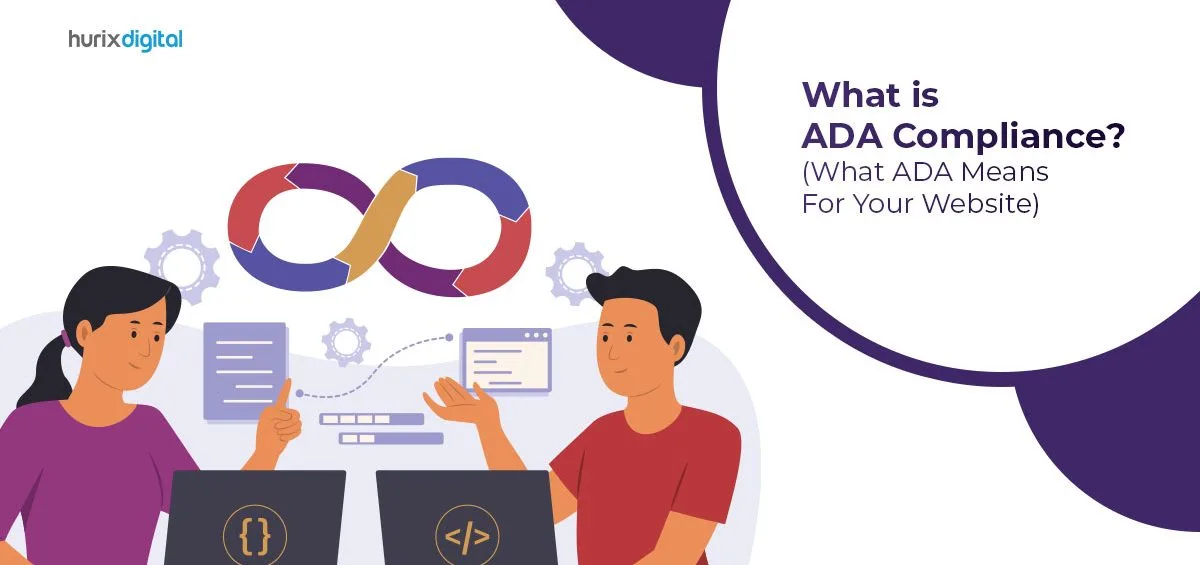Summary
This blog provides a comprehensive overview of ADA compliance, including the significance of the law and its applicability.
In today’s digital age, websites serve as powerful platforms for businesses to connect with their target audience and offer products, services, and information. However, many website owners may overlook a critical aspect of their online presence—ADA compliance. The Americans with Disabilities Act (ADA) requires that individuals with disabilities have equal access to goods, services, and information, including websites. Ensuring ADA compliance for your website is not only a legal obligation but also an ethical and inclusive approach that benefits both your organization and the users. In this article, we will explore the importance of ADA compliance for website owners, the impact it has on user experience, and the benefits it brings to your business.
One critical aspect of inclusivity is ensuring compliance with the Americans with Disabilities Act (ADA). This landmark legislation, enacted in 1990, protects the rights of individuals with disabilities and promotes equal access to public spaces, including websites. In this blog, we will delve into the significance of the ADA, its applicability, implementation, and the guidelines website owners should follow to achieve ADA compliance.
Also Read: How to Check if Your Website is ADA-Compliant
What is the ADA?
The Americans with Disabilities Act (ADA) is a comprehensive civil rights law enacted in the United States in 1990. Its primary goal is to prohibit discrimination against individuals with disabilities in various areas, including employment, public services, transportation, and access to public accommodations. In the digital realm, the ADA also extends to websites, ensuring that they are accessible to people with disabilities.
Why is ADA Compliance Important?
ADA compliance is crucial because it ensures that individuals with disabilities have equal opportunities to access and engage with digital content and services. By making websites accessible, businesses and organizations can cater to a broader audience, improve user experiences, and demonstrate a commitment to inclusivity and social responsibility. ADA compliance also helps mitigate legal risks, as failure to comply with ADA requirements can result in legal action and financial penalties.
The ADA applies to various entities, including private businesses, non-profit organizations, and state and local government agencies. It covers both physical locations and digital spaces, such as websites and mobile applications. While the ADA does not explicitly mention websites, courts have interpreted the law to extend to online platforms to ensure equal access for individuals with disabilities.
Implementing ADA Compliance
To achieve ADA compliance for websites, it is essential to follow recognized guidelines, such as the Web Content Accessibility Guidelines (WCAG) developed by the World Wide Web Consortium (W3C). The WCAG provides a set of technical standards and success criteria for making websites accessible. Implementing ADA compliance involves evaluating the website’s design, content, and functionality and making necessary modifications to meet the WCAG guidelines.
Guidelines for Website Owners
Here is a comprehensive list for website owners on how to have ADA-compliant websites:
- Provide Alternative Text: Include descriptive alternative text for images, ensuring that users with visual impairments can understand the content through screen readers.
- Use Descriptive Headings: Organize content with proper heading structures, facilitating navigation and comprehension for individuals using screen readers.
- Ensure Keyboard Accessibility: Ensure that all functionality and interactive elements can be accessed and operated using a keyboard alone, enabling users with mobility impairments to navigate the website effectively.
- Optimize Color Contrast: Use sufficient color contrast between text and background to ensure readability for individuals with visual impairments or color blindness.
- Provide Transcripts and Captions: Offer transcripts for audio content and captions for videos, allowing individuals with hearing impairments to access the information.
- Design Consistent and Intuitive Navigation: Create a clear and logical navigation structure, facilitating the easy exploration of the website for all users, including those using assistive technologies.
ADA Compliance Procedure
To achieve ADA compliance, website owners can follow these general steps:
- Conduct an Accessibility Audit: Evaluate the website’s accessibility by examining its design, code, and content against recognized accessibility standards, such as the WCAG.
- Identify Barriers: Identify any accessibility barriers or issues that prevent individuals with disabilities from accessing and using the website effectively.
- Implement Accessibility Improvements: Make necessary modifications and improvements to address the identified barriers, ensuring compliance with WCAG guidelines.
- Regular Testing and Maintenance: Conduct regular accessibility testing to ensure ongoing compliance and address any new issues that may arise. Continuously maintain and update the website to adhere to evolving accessibility standards.
Also Read: Section 508 Compliance in Accessibility: A Complete Guide
Conclusion
ADA website compliance is vital for creating an inclusive digital environment, allowing individuals with disabilities to access and engage with online content and services. Website owners play a significant role in ensuring ADA compliance by following recognized guidelines, such as the WCAG, and making their websites accessible to all users. By embracing ADA compliance, website owners demonstrate a commitment to inclusivity, improve user experiences, and contribute to a more accessible online world. Utilizing an ADA compliance checker and conducting accessibility website testing can further support the journey toward creating ADA-compliant websites.
Hurix Digital can help website owners with their ADA compliance needs. Get in touch with Hurix Digital today!











